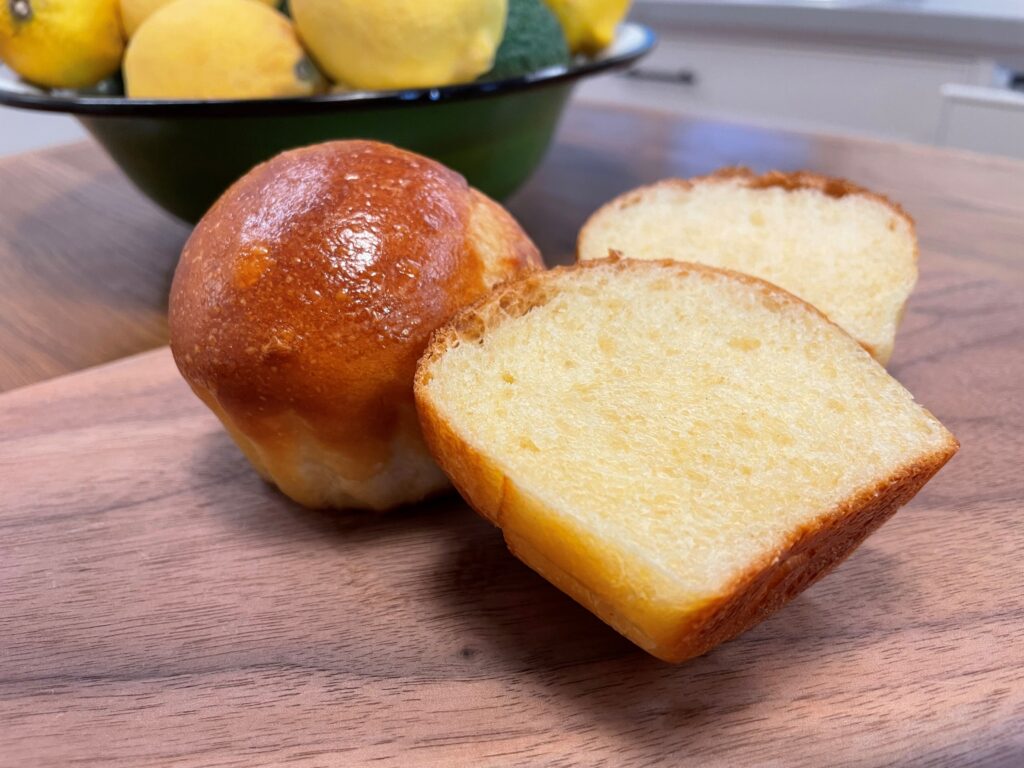
Israel’s Gavan Technologies has closed an $8M Series A funding round to commercialise its plant-protein-based animal fat alternative in Europe.
To transform the taste, texture, and nutritional profile of vegan dairy and bakes, Gavan Technologies is banking on its zero-waste technology to extract plant proteins and turn them into a next-gen fat matrix.
And investors are now banking on Gavan, pouring $8M into its Series A round. The financing was led by MoreVC, with participation from Lever VC, DarkBoot Group, and the EU-backed EIT Food platform.
The startup, which has raised $10.5M to date, will use the capital to set up a new production facility in Cyprus and break into the European bakery and dairy sectors with its vegan fat solution, Fatrix. The manufacturing plant has a current capacity of 200 tonnes a year, and is set to become operational by April 2025.
“This facility allows us to produce Fatrix at a commercial scale while refining our processes to prepare for future expansions,” Gavan co-founder and CEO Itai Cohen tells Green Queen.
“As early investors in the alternative protein space, we’ve evaluated countless fat solutions aiming to replace butter or animal fats,” adds James Caffyn, partner at Lever VC. “Gavan’s platform stands out as the most compelling, offering a unique ability to partner with large corporates while achieving capital-efficient scaling and competitive unit economics. These qualities position Fatrix as a game-changer in the move towards healthier and cleaner-label foods.”
A zero-waste process with multiple products

Cohen and co-founder Allen Hazan established Gavan in 2018 to develop functional ingredients for the food industry through its plant protein extraction technology. Its flagship product is a multi-texture oleogel that requires 20 times less protein than other plant-based fat alternatives on the market.
Oleogels involve a combination of oil with gelators to form hard structures and give unsaturated oils some of the functional attributes of harder saturated fats. They’ve been recognised as an innovative alternative to animal fats, but regulatory restrictions and a lack of food-grade gelators have impeded their commercialisation.
Fatrix, though, is made from pea protein isolate, vegetable oil and water. None of these ingredients are new to the food system, meaning the fat doesn’t require novel food approval in the EU.
“We apply a proprietary no-waste protein extraction process that preserves the protein’s original structure,” explains Cohen. “This acts as a base upon which we add a plant oil and water, acting as a binder and carrier for the fat matrix. It is designed to be efficient, sustainable, and scalable to meet the demands of modern food manufacturing.”
Usually, up to 80% of the plant source goes to waste, or is relegated to compost or feed. And when byproducts are generated, they’re often too diluted or low in quantity. The multi-step process enables Gavan to isolate and extricate multiple proteins and other valuable components until the entirety of the plant is utilised.
The zero-waste approach enables the firm to use all sidestreams from its production process to create additional ingredients for human consumption. “Our protein extraction technology does not alter the natural structure of the protein or the remaining plant material,” says Cohen. “As a result, the byproduct is a pea powder with reduced protein content, which can be repurposed in various food applications.”
Targeting better nutrition and functionality

Fatrix is positioned as a one-to-one replacement for butter in a range of bakery products and dairy alternatives, enabling manufacturers to lower calories due to the high water content in the plant-based fat. “This innovative formulation maintains the rich texture and performance of butter but with fewer calories, aligning with consumer demands for healthier alternatives,” notes Cohen.
The fat can replicate the functionality of butter in baked goods like brioche and croissants, and enhance non-dairy whipping creams, cream cheeses, puddings, and more, without the need for additional thickeners, emulsifiers, or stabilisers. This gives products a cleaner label, which is increasingly important to consumers.
Additionally, Fatrix has a “very low content of saturated fats”, and since it isn’t hydrogenated, it has zero trans fats. This allows food producers to score better on the nutrition front, while also delivering efficiency in scale-up and costs.
“It is neutral in flavour, odourless, and highly versatile, making it possible to create any texture required,” says Cohen. “It maintains stability and water- and fat-holding capacity even under processing conditions of high heat and physical pressure.”
While Gavan is using pea protein isolate as the primary source for Fatrix, its platform is compatible with a diverse range of ingredients. “Our technology is versatile and allows us to extract proteins from any legume, giving us the flexibility to adapt to specific needs and raw material availability,” he explains.
“As a B2B company, we supply Fatrix to food manufacturers,” he adds when asked about Gavan’s plans for launch. “We anticipate seeing products containing Fatrix on shelves within a few months after production starts. These products will likely appear in categories such as baked goods and other dairy alternatives.”
The post Israeli Startup Churns $8M in Funding for Zero-Waste ‘Butter-Like’ Vegan Fat appeared first on Green Queen.
This post was originally published on Green Queen.